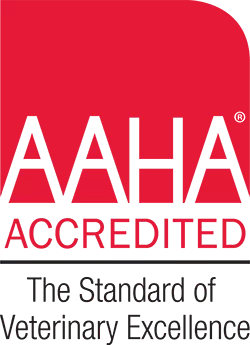All About Dog Dental Care at Hampton Veterinary Hospital
Similar to us, keeping a healthy, happy, pain-free mouth is very important to overall life. Having a great quality of life affects how we feel, from simply chewing to living our daily lives. It's also important as it provides longevity and reduces other diseases or problems that can occur in our body. Ideally, we want to keep a happy, healthy smile and keep all our teeth in our mouths for as long as possible, if not our entire lives. We want that for our pets as well.
Why does my dog need anesthesia for a dental procedure?
We don't typically recommend twice-a-year dental cleanings for most of our canine loved ones because they involve general anesthesia. There's certainly some risk involved, as well as the increased cost compared to what our dental care costs without needing general anesthesia. We don't take this lightly. We screen our patients during examination and with blood work before considering general anesthesia.
Our staff here is trained and takes great pride in ensuring that our pets are doing well during, before, and after general anesthesia. Because of that, we have an excellent track record with safety, with pets doing well, going home, and continuing to do well health-wise when we anesthetize our patients for things like dental cleanings.
What's involved in a dental cleaning for my dog?
Dental cleanings typically involve being here for a good portion of a day. We place pets safely under general anesthesia, clean all the tartar from the teeth and under the gum pockets, do a scaling and charting of all gum pockets just like our dental hygienist would do, and take digital X-rays, which are quick. We save those images, and then the doctor evaluates the mouth and the X-rays. We determine whether anything needs to be done.
Hopefully, we're doing dental cleanings as recommended in a timely manner, so we're not losing any teeth. But sometimes, as it happens, dental cleanings get delayed for different reasons. Then, periodontal disease sets in and gets to the point where it's fissuring under the gum line, loosening the connection between the tooth and the mouth, and eventually, some teeth get loose enough where we can't save them. Your dog will benefit from having those teeth extracted.
We want to reduce that likelihood as much as possible, but sometimes that's not possible. The best thing we can do for those pets is to remove those painful teeth that are only going to get worse and fall out anyway. We're very cautious with pain management for our pets during the process and afterwards, too, and we're super cautious with our anesthesia.
Why is regular dental care important for my dog?
Staying up on dental care, just like with us, can improve how we feel overall or how our pets feel, specifically, and how our pets do in the long term. It also reduces the risk of things like bacterial infections getting into other areas of the body, especially places like heart valves, just like with us. That can happen with our dogs as well. We can control those potential diseases by taking care of oral care when appropriate.
Dogs in general, the smaller the dog, the faster they tend to develop tartar. If you have a large or a giant breed dog, they might only need one or two dental cleanings in their whole life to stay up on dental care and not lose any teeth, keeping things healthy. Whereas a small or toy breed dog starting at 3 or 4 years of age might need a cleaning every 12 to 18 months to stay up on things.
Your veterinarian here will advise you on the best things to do for your pet to keep their mouths and bodies overall healthy.
If you’re ready to schedule an exam or would like to learn more about our veterinary services, we’d love to hear from you. Call (603) 926-7978 or email [email protected]. We look forward to caring for your pet.

